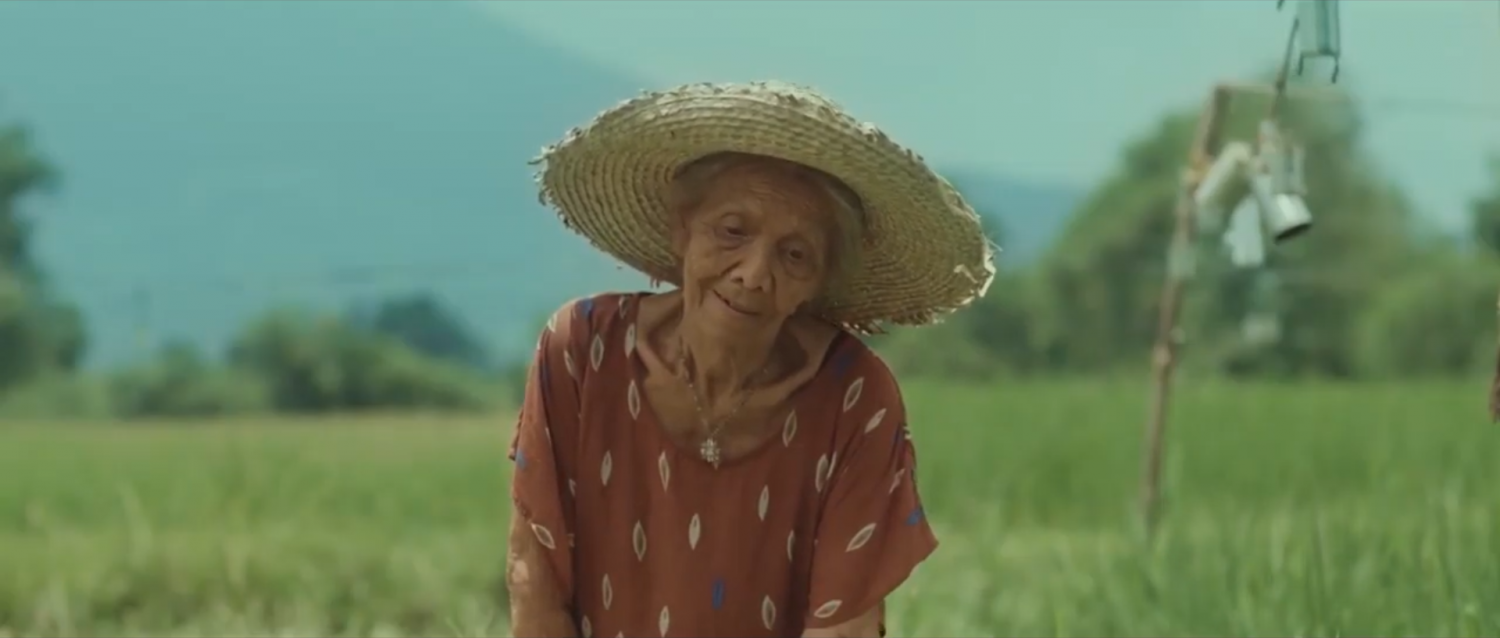By ANA MURIEL R. VERON

HUMANS HAVE an innate fear of death. It is within everyone’s genetic instinct to prolong survival. Nevertheless, one must eventually realize that death is an inevitable part of life and is not something one should be afraid of, because while dying might seem joyless, living for far too long might be more so.
Lola Igna (Angie Ferro) appears to have warded off death for as long as she has warded off the birds from her grass fields. At one-hundred and eighteen years old, she is awarded the mantle of Oldest Living Grandmother in the Philippines. While the people of the humble Baryo Alhaya eagerly await the announcement of whether or not she will also to be crowned the Oldest Living Grandmother in the World, the grouchy grandmother herself is only eager to rest in peace. She hates the attention and avoids the tourists who come to meet her daily — that is until one day, her estranged relative arrives as one of the tourists. Her great-great-grandson (Yves Flores) is an aspiring vlogger who had only heard of his famous lola-lola from the news and he is hoping to latch on to some of her fame as well as reconnect with his long lost great-great-grandmother who is not as grumpy as she seems.
Under the direction and writing of Eduardo Roy Jr, Lola Igna laments the pain of a woman who has surpassed the existence of many of her loved ones: from her beloved husband to even all of her own children. She yearns for death because she longs to be with the people she loves. Although she treasures her living family and understands that she will be leaving them behind, she believes it is long past her time and knows that death is not to be feared.
Veteran actress Angie Ferro’s masterful acting and command over humor brings the titular grandmother to life. The particular scene where Lola Igna spitefully recounts the many funerals she should not have attended is an excellent manifestation of Ferro’s acting prowess. Apart from the more serious moments of the film, Ferro is also able to deliver humor admirably as the sassy grandma who always has an answer to everything.
Yves Flores’ character serves as the film’s main comedic relief as well as the audience’s window into the Baryo of Alhaya. Tim is a young, enthusiastic city kid who has come all this way to meet his famed great-great-grandmother. While, Flores has not quite acquired the firm grasp on acting a seasoned performer like Ferro would have, he still manages to keep up with Ferro and the likes of Meryll Soriano and Maria Isabel Lopez despite being in only a handful of movies and a number of television shows.
The immersive cinematography of Tey Clamor places the viewer right into Baryo Alhaya. One can almost feel the wind as Tim vlogs his grandmother in the fields. The rich colors in every shot, especially of those during the night, makes the scene especially captivating. The clear-blue skies, sunny mornings and warm, candle-lit evenings at Lola Igna’s kubo provides a cozy and intimate setting.
As for special effects, the flock of computer-generated birds used during the scenes in the fields sticks out like a sore thumb. Their unrealistic and low-quality rendering distracts the viewer from the scene and is quite frankly plain unpleasant to look at. However, as the use of CGI is expensive, it would be understandable for a film of this budget.
The score by Andrew Florentino, like the overall cinematic mood of the film, is bright and lively. Even during scenes of heavy drama, the music does not veer into being too depressing, because while the premise of the story is quite dark in nature, the way it is told is through an optimistic and hopeful lens.
This wholesome entry to the Pista ng Pelikulang Pilipino film festival garners a total of four accolades out of seventeen categories and even bags the coveted Best Picture award. Angie Ferro herself is granted Best Actress and Maria Isabel Lopez receives a nomination for Best Supporting Actress. Andrew Florentino is awarded Best Score and writer-director Eduardo Roy Jr. with Margarette Labrador grace the stage for winning Best Screenplay.
All in all, Lola Igna bears witness to the hardships of a super-centennial grandmother who has grown tired and weary of the prolonged existence God has blessed her. At the same time it also illustrates that although such a long life may yield many grievances, one can always find something to live for. F



